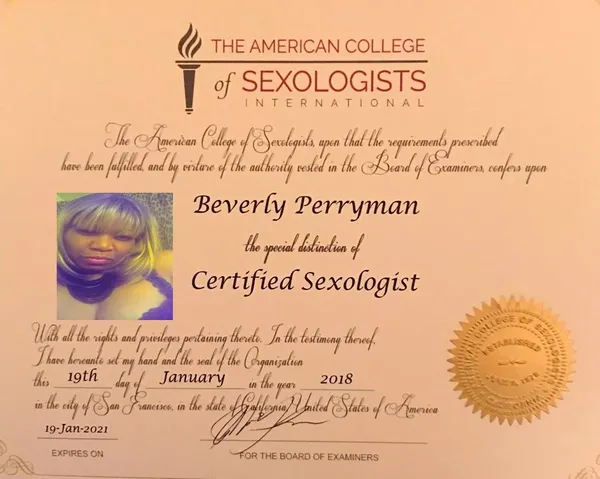Coming Together in this Time of Social Distancing
 Here I am, under a shelter-in-place order, as I’m sure most of you are too. However, even before the order, I started distancing myself and limiting interactions with others, not because I’m high-risk, but because I consider everyone a threat. I am accustomed to choosing when and where I go. But it feels different now that someone else is controlling it. The fact is, being deprived of social connections can create more illness due to stress.
Here I am, under a shelter-in-place order, as I’m sure most of you are too. However, even before the order, I started distancing myself and limiting interactions with others, not because I’m high-risk, but because I consider everyone a threat. I am accustomed to choosing when and where I go. But it feels different now that someone else is controlling it. The fact is, being deprived of social connections can create more illness due to stress.
I have no doubt, this season will pass, but in the meantime, I am looking at how we can optimize this extraordinary opportunity called "shelter in place."
The fact being, the lack of social connections increases stress, and lonely people have a higher level of the hormone cortisol which is an indicator of stress. Isolation can lead to depression and other conditions. Other factors including loss of livelihood and routines send some people into depression. Another concern is the increased family conflict because people are forced to spend unusual amounts of time together, many in confined spaces.
 We all need that human connection, which I’ll discuss later, but first, for people who are used to working from home, social distancing isn’t a huge change for them. If you’re new to this and can’t figure out what to do to occupy your time, and to relieve your stress, here are some helpful tips:
We all need that human connection, which I’ll discuss later, but first, for people who are used to working from home, social distancing isn’t a huge change for them. If you’re new to this and can’t figure out what to do to occupy your time, and to relieve your stress, here are some helpful tips:
- Reach out to loved ones, and friends: While you CAN NOT visit and hug but you can interact via phone, facetime, zoom or skype. Set up a plan to contact at least one person each day. Instead of feeling distanced and isolated use this great technology that is available to get closer to loved ones.
- Use this as a time of reflection; ask yourself what I have neglected that I can now focus on. Choose something that brings you a sense of pleasure and satisfaction. Maybe it’s as simple as making time to read a novel, or as complex as writing your memoir. Just do something that will bring you joy.
- Get an exercise routine into your day: Exercise is important for our physical and mental health, it’s a natural anti-depressant. It can be as simple as walking up and down the stairs a few times, to tuning into a YouTube exercise video.
- Learn to Meditate: Meditation is a form of mind-body medicine, it has been practiced for thousands of years. During meditation, you develop intentional focus — minimizing random thoughts about the past or future. Research has found that meditation may help reduce symptoms of anxiety and depression.
- Choose one important TASK that needs to be done; (different from #2) that you can do at home. You know, a chore on that to-do list that’s been hanging over you for weeks, months, years? You might not enjoy doing it, but you will enjoy having done it. For every accomplishment, no matter how small reward yourself.
So now, let’s discuss Human Connection: Can we live without it? According to Maslow, we have five categories of needs: physiological, safety, love and belonging, esteem, and self-actualization.
 In this theory, higher needs in the hierarchy begin to emerge when people feel they have sufficiently satisfied the previous need. For the sake of human connection, I’ll only focus on Love and Belonging. According to Maslow, “the need in the hierarchy involves feeling loved and accepted. This need includes both romantic relationships as well as ties to friends and family members. It also includes our need to feel that we belong to a social group. Importantly, this need encompasses both feeling loved and feeling love towards others”.
In this theory, higher needs in the hierarchy begin to emerge when people feel they have sufficiently satisfied the previous need. For the sake of human connection, I’ll only focus on Love and Belonging. According to Maslow, “the need in the hierarchy involves feeling loved and accepted. This need includes both romantic relationships as well as ties to friends and family members. It also includes our need to feel that we belong to a social group. Importantly, this need encompasses both feeling loved and feeling love towards others”.
Can we live without human connection? No, we cannot and since Maslow, many researchers have continued to explore how love and belonging need impact well-being. For example, having social connections is related to better physical health and, conversely, feeling isolated, has negative consequences for health and well-being. When we are connected we feel happiness, sadness, frustration, sympathy, anger, etc. We are able to connect with each other in that sense, that’s emotional.
But what about the physical connection? Do we need Intimacy; hugs, kisses, and Sex, but in the age of social distance, here are some things you can do if you’re separated:
- Practice extreme self-care: meditate, eat well, get enough sleep, exercise in whatever capacity you can, have regular orgasms, if you are isolated with a partner, get lots of healing touches, and continue seeing your therapist or coach by skype or video conference. and if you don’t have one seek one, do whatever it is you need to raise your vibration and stay well.
- Learn something new about Intimacy and sex.
- Give yourself an orgasm
- Try something new during solo or partnered sex.
You’ll feel better and less isolated if you’re intentionally doing something that you enjoy rather than just passing time.
 Bio: THE SEXOLOGIST (Sexuality Expert)
Bio: THE SEXOLOGIST (Sexuality Expert)
Beverly Perryman aka, "SpiceIslandGirl"
As A Certified Sexologist/Sexuality Coach, I have acquired the Expertise in Adult Sexuality to help you Spice Up your Relationship. I am proficient in Affair Crisis and developing an action plan.
As a Sexuality Expert, my mission is to help you come into your Sexuality while providing a Shame Free, Adult Sex Education/Coaching environment. What I am is: committed to having you discover and create the sex life you want through guided questions, suggestions and exercises. As your Sexuality Expert, I am committed to your Total confidentially. I will be honest when I don’t know the answer to your question; I will do my research to make sure I get you the most accurate information.
Who and/or what inspires and motivates Me? I am a self-motivator however, what inspires me, is when I see the progress in my clients, and they say to me "Damn you're good".






